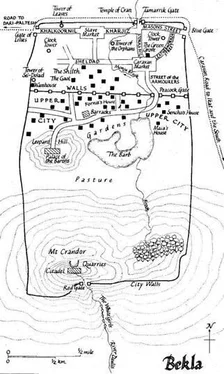Richard Adams - Maia
Здесь есть возможность читать онлайн «Richard Adams - Maia» весь текст электронной книги совершенно бесплатно (целиком полную версию без сокращений). В некоторых случаях можно слушать аудио, скачать через торрент в формате fb2 и присутствует краткое содержание. Жанр: romance_sf, на английском языке. Описание произведения, (предисловие) а так же отзывы посетителей доступны на портале библиотеки ЛибКат.
- Название:Maia
- Автор:
- Жанр:
- Год:неизвестен
- ISBN:нет данных
- Рейтинг книги:4 / 5. Голосов: 1
-
Избранное:Добавить в избранное
- Отзывы:
-
Ваша оценка:
- 80
- 1
- 2
- 3
- 4
- 5
Maia: краткое содержание, описание и аннотация
Предлагаем к чтению аннотацию, описание, краткое содержание или предисловие (зависит от того, что написал сам автор книги «Maia»). Если вы не нашли необходимую информацию о книге — напишите в комментариях, мы постараемся отыскать её.
Maia — читать онлайн бесплатно полную книгу (весь текст) целиком
Ниже представлен текст книги, разбитый по страницам. Система сохранения места последней прочитанной страницы, позволяет с удобством читать онлайн бесплатно книгу «Maia», без необходимости каждый раз заново искать на чём Вы остановились. Поставьте закладку, и сможете в любой момент перейти на страницу, на которой закончили чтение.
Интервал:
Закладка:
One spring day, when Sencho was in his twenty-fifth year, the elderly Fravak revealed to him that he had made him his heir and intended him, as the reward of his faithful services, to succeed to the control of the iron business. Sencho, who did not mean to remain buying and selling meta' all his life, now realized that it was vital that he should take the next step before anything might happen to cause Fravak to change his mind.
The murder was astonishingly easy. At this particular time the merchant had two favorites, one a merry, lewd-minded little Yeldsashay boy, ten years old and shaping well; the other, who had been longer in the household, a dark, handsome, thirteen-year-old Katrian, taken in a raid across the Zhairgen north of Dari-Paltesh, not popular in the household on account of speaking little or no Beklan and all too plainly regarding himself as still an enemy of Bekla. At first Fravak had greatly enjoyed this boy, but of late had begun to prefer the Yeldashay lad as being more ingenious and reciprocal. Sencho, who of course had a key to his master's room, simply went to it in the middle of the night when Fravak and the lad were asleep, stabbed them both and then left the knife and his key in the Katrian boy's bed. As Fravak's heir and representative at law he gained credit for earnestly begging the authorities that the boy, on account of his youth, should receive a quick and
merciful death. The last thing he wanted was for the boy to be tortured, for those in extremis speak the truth, and an experienced examiner is adept at perceiving when they are doing so. The boy's continued insistence on his innocence might have given rise to speculation.
At first Sencho was content to use Fravak's money in pitting his wits against other iron-merchants, in entering new areas of trade-cloth, rope and precious stones-and in indulging his greed and lust more fully and pleasantly than had been possible before. Fravak had been a sound rather than an enterprising merchant and, despite the fact that he traded a great deal in iron required for weapons and armor, had never felt any inclination, in his dealings with the Beklan military commanders, to advance himself other than financially. By contrast, Sencho was consumed with the desire for real and actual power.
At this period of the empire's history-inevitably, in a semi-barbaric country where roads and transport were still rudimentary-the scope of the central authority was limited. Bekla itself, of course, was a natural focal point or hub for communications and trade. Centuries before, the barons of Bekla, able to exercise control over this important cross-roads and commercial center, had turned the city's position to advantage by collecting dues from those who came to trade in or travel through it. These had been Senda-na-Say's ancestors-controllers of an asset which the provinces around them could not well do without, and for the benefit of which they were accordingly ready to pay. Later, as Bekla's prestige, wealth and strength gradually grew, they also became prepared to bid against one another for its support. Lapan would ask for protection against Yelda, Urtah against Paltesh, and so on. It became Bekla's policy to exploit a rudimentary balance of power. Sometimes payment was made in money, cattle or slaves; sometimes by way of a pact which further extended Beklan authority.
Gradually a hegemony emerged, centering on Bekla and extending from Belishba to the Vrako and from Yelda to the Telthearna. But although Bekla now collected taxes and controlled a standing army made up of contingents from the provinces, the autonomy of the provincial barons was certainly not at an end. Once, for example, when the army had been ordered to Sarkid to enforce a Beklan tax decree, the Sarkid contingent deserted at the frontier, the
army encountered strong local resistance and the end of the business was a very nominal and face-saving enforcement of the decree for a year, after which it was conveniently forgotten. Sarkid, of course, with its ruling line descended from the legendary hero U-Deparioth, had always been an exceptionally proud and independent province, but the incident exemplified clearly enough that the provinces and their baronial rulers were by no means entirely under Beklan control.
The provincial barons met yearly, in the great Palace on the Leopard Hill, at the time of the spring festival held to celebrate the Sacred Queen's ceremonial union with the god Cran. At these meetings oaths of loyalty were sworn, the empire's affairs-in-common were discussed and policy more-or-less agreed upon; but the house of na-Say had learned, over many years, that the continuance of its power was only partly dependent upon intimidation. Equally important were first, the benefits it could grant or withhold- namely, help in emergency, assistance with civil works and enforcement of law and order-and secondly, the exercise of a prudent discretion in ignoring provincial quarrels unless and until they went too far.
The empire's intermittent war with Terekenalt, on its western borders, had lasted longer than living memory. The kingdom of Terekenalt was a relatively small country, no bigger than two Beklan provinces put together, but its people were hardy, warlike and almost entirely loyal to an able monarchy. The war, conducted in difficult country between armies able to campaign effectly only during the summer months, was for the most part an affair of personal exploits, skirmishes, raids, burnings and lootings. Every now and then, however, under the leadership of some determined captain on one side or the other, it would flare up into a more serious business. The Zhairgen, down the last fifty miles of its length, represented a considerable obstacle between the contestants. Nevertheless, it was crossed again and again by commanders of both sides eager to prove their worth and to take booty.
The principal contested area was Suba, the watery region lying between the Zhairgen on the west and its tributary, the Valderra, on the east. This, somewhat tenuously owing allegiance to Urtah, was (as Occula described it in her story) marsh and fishing country, full of lakes, crisscrossed by tributaries of both rivers and inhabited from
time immemorial by men inured to swamps and mists, accustomed to building their dwellings on islands or even on stilts above the water, and expert in the use of rafts, boats and nets. To the Beklans it was unarguable that the natural frontier between Terekenalt and the empire was the River Zhairgen. The kings of Terekenalt considered that it should be the River Valderra. From time to time Terekenalt would invade Suba-insofar as anyone could effectively invade such a country-until the empire, goaded into concerted action, would mount an expedition to repulse so serious a threat to Urtah and Paltesh.
Immediately to the west of the Zhairgen lay the Terekenalt province of Katria, the northern part of which comprised the wild and dangerous Blue Forest. Keril, the principal town of Katria, had more than once been menaced by a Beklan raiding force, but never as yet taken.
So matters stood some two or three years after Sencho's inheritance of the wealth of Fravak. About this time there appeared two figures-one on each side-whose respective effects were to strengthen Terekenalt's ambition to take Suba; and to weaken the resistant power of Paltesh and hence of the empire itself.
On the one hand, King Karnat succeeded to the throne of Terekenait. Even in a long line of warlike kings, Karnat was egregious. In the first place he was, physically, almost a giant-immensely tall, and well-made in proportion. The very sight of him was enough to inspire his subjects and followers with admiration and confidence. Secondly, he soon showed himself an active leader, aggressive and darings-the kind of man whose latest exploit is related from mouth to mouth. Finally he was, in a rudimentary way, a diplomat, taking pains to conciliate local nobility in outlying parts of the Beklan Empire. It was rumored that his agents had even travelled as far as Chalcon, the wild and mountainous country lying between Tonilda and Yelda, though of this there was no real proof. What was clear, however, was that Karnat the Tall was hell-bent on an effort, more determined than any made by his predecessors, to conquer and integrate Suba.
Читать дальшеИнтервал:
Закладка:
Похожие книги на «Maia»
Представляем Вашему вниманию похожие книги на «Maia» списком для выбора. Мы отобрали схожую по названию и смыслу литературу в надежде предоставить читателям больше вариантов отыскать новые, интересные, ещё непрочитанные произведения.
Обсуждение, отзывы о книге «Maia» и просто собственные мнения читателей. Оставьте ваши комментарии, напишите, что Вы думаете о произведении, его смысле или главных героях. Укажите что конкретно понравилось, а что нет, и почему Вы так считаете.












